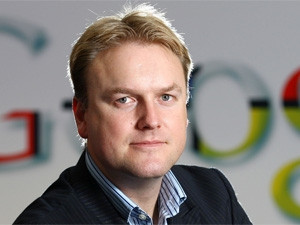
Google has committed to train one million young people across Africa in the next 12 months, in digital skills, as a way to help Africa's unemployment problems.
The Internet giant made the announcement at an event in Johannesburg, where it also launched its online learning portal digifyafrica.com, with aims to make young Africans more employable.
"This is the kind of problem Google was designed to solve, and we think it is enormously important to be involved," according to Google SA country director, Luke McKend.
"If you think about what is happening in SA in terms of the skills gap that exists, whether it is digital skills or any other, I think there is an enormous role for organisations to play to bridge those gaps."
To make this ambitious goal a reality, Google has teamed up with youth agency Livity Africa to run two different face-to-face training programmes. It has also launched an online learning portal that will house a range of digital skills courses, free to anyone in Africa.
The 'Digify Bytes' programme is a one- or two-day training programme aimed at giving digital skills to young people looking to develop digital careers. Sessions are targeted at young Africans aged 18 to 30. The next Digify Bytes session takes place on 15 April, in Nairobi, Kenya and the course will move to Lagos, Nigeria on 23 April.
The 'Digify Pro' course is a three-month immersion programme that aims to create "the next generation of job-ready digital upstarts". The course is already running in Johannesburg and Cape Town, with a wide range of practical workshops on digital campaigns, social media and content creation, as well as training on Google Search, AdWords, YouTube and Analytics.
Workplace-ready
"We develop participants' professional skills, preparing them for their ideal digital job, and helping to place graduates into full-time jobs or internships upon programme completion," says Google.
"The Internet has changed what is possible for small businesses. We know small businesses are more profitable when they are online and have a Web site, and also employ more people when they are online. We also know that people who have digital skills are in fact more employable and that if there is more Internet access in a country, it actually drives economic growth," according to McKend.
The two "offline" Digify programmes have already launched in Nigeria, Kenya and SA, and have trained 11 000 people in these regions, with plans for more countries to be added in future. In SA, Digify has trained 150 people since 2014 - all of whom have subsequently been employed or started their own businesses.
The success of the programme led Google to question how it could expand to reach more people; a goal it has now set at one million over 12 months. A group of 65 volunteer Googlers ? from nine different countries ? are helping the Livity team with content development, 'training the trainers' and, in some cases, delivering the training sessions.
Of the one million students, Google says around 100 000 will be trained face-to-face through its offline Digify programmes, while the remaining 900 000 will receive training through online digital skills tutorials and courses on the new Web site.
There are currently nine training courses available on the Web site and Google aims to have 50 available by July. The learning portal was designed to be as 'data light' as possible so as not to use up too much data from users who could potentially be using mobile phones to access course work.
"The Internet is at the heart of economic growth and the digital skills programme is aimed at helping more Africans play a part in the digital economy. Everyone can succeed online, start a new business, grow their existing one, or share their passion," according to McKend.
Tackling unemployment
One of the main goals of the Digify programme is to make young people more employable, and therefore assist in Africa's serious unemployment problems. Google says youth unemployment is at around 35% in SA, 17% in Kenya and 13% in Nigeria.
By 2020, there will be half a billion Internet users in Africa, which Google sees as a great opportunity for African businesses and digital entrepreneurs.
"Developing digital entrepreneurship and creating new job opportunities for young people is critical to Africa's transformative growth. But digital skills are still under-developed, making it harder for African economies to get the most out of the Web," says Google.
McKend says the Digify programmes and online courses aim to equip participants with the "skills to manage their own online profiles, develop their professional personas, potentially start small businesses and accelerate that type of economic growth that we need to see across not just SA but also the rest of Sub-Saharan Africa".
"It's less about hard-core coding skills than it is about developing the kind of skills that you need to operate really well in the digital media environment. So typically the type of career paths that people will take from the Digify Pro course would be to work for an advertising agency or the marketing department of a corporate organisation. We have also found Digify Pro can be an important starting point for those wanting to start their own businesses ? so there are a wide range of applications."
Google is also talking to potential partners across Africa, with plans to further scale the training programme to reach even more young people in more countries.
Share